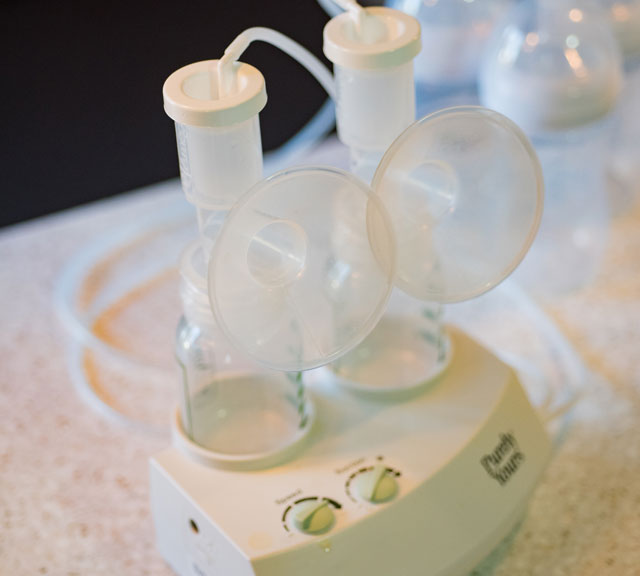The Precious Gift of Breastfeeding a Preemie

Find Your Perfect Match
Answer a few questions and we'll provide you with a list of primary care providers that best fit your needs.
With a preemie in the newborn intensive care unit (NICU), you’re handling hard challenges and emotions. Adding to the mix of stress, fear and love, you may also struggle with feeling helpless.
But rest assured that you do have a way to help — one that you alone can provide. Your breast milk is vital for your baby. Premier Health lactation consultant Maria Greene, RN, BSN, IBCLC, says, “Breast milk is like medicine for your premature baby."
How Breast Milk Helps Preemies
Breast milk is even more important for a preemie than for a full-term newborn. Greene says, "The colostrum and the breast milk protect the baby's gut by coating it and helping set up the immune system." For example, one major danger preemies face is developing necrotizing enterocolitis (NEC), a serious medical problem. According to research reported by the American Academy of Pediatrics, babies who receive breast milk have their risk for NEC reduced by 77 percent.
The milk you produce as the mother of a preemie is actually different than if your baby were full term, with more protein and other nutrients. And even though pumping and nursing a baby in the NICU.
can be challenging, Greene observes, "Most mothers feel like this is something they alone can do for their babies, so they’re very motivated to do it. It can be therapeutic for a mother, especially when there are so many others caring for her baby."
If you are not able to breastfeed, preemies who meet certain guidelines can get donor breast milk. Although it’s pasteurized, Greene says, "It's still considered far superior to formula."
Breastfeeding Your Preemie in the NICU
Once you deliver your baby, Greene says, "We try to get the mother hand-expressing milk between one and two hours after delivery." For instructions on hand expression endorsed by Premier Health’s lactation consultants, view this video.
Breastfeeding will look different depending on your preemie’s age. At first, you may not be able to directly nurse your baby. But even the drops you express in the beginning will be used for oral care. As your supply increases, your pumped milk will be fed to your baby by her nurses. And, holding your preemie skin-to-skin is incredibly important for your baby’s health and your milk supply. Researchers keep learning more about the benefits of skin-to-skin contact.
You can use a combination of hand-expressing and pumping to build a good supply of milk for your baby. Pump every two to three hours, at least eight to 10 times per day at the hospital and at home. Try not to go more than three hours without pumping. Talk to your health care team about how to store your breast milk.
As your preemie grows and becomes stronger, he can start learning how to breastfeed, typically around 33 weeks (though sometimes even younger). Your nurse or a lactation consultant can guide you with the best positions for nursing your preemie. Be patient with this process. Greene says, "Preemies tire easily. They may not wake up to eat. They don't move milk as effectively." But, every little bit of breast milk your baby can get is a victory.
“Breast milk is like medicine for your premature baby."
Breastfeeding Your Preemie at Home

Before your baby comes home, a feeding and pumping plan will be developed with your nurses, doctors and lactation consultants. Then, nurse as he is hungry, at least eight to 12 times per day. You'll know he’s getting enough milk when he has at least eight wet and three or more dirty diapers in a day.
The hospital staff will weigh your baby before you leave, and then he'll be weighed as well at his regular pediatrician visits. We recommend a check-up in a lactation clinic where your baby can be weighed before and after a feeding to give you reassurance. If you have any trouble with breastfeeding at home, be sure to swiftly contact a lactation consultant to get the help you need.
Find Your Perfect Match
Answer a few questions and we'll provide you with a list of primary care providers that best fit your needs.
Source: Maria Greene, RN, BSN, IBCLC, Premier Health; American Pregnancy Association; La Leche League International


